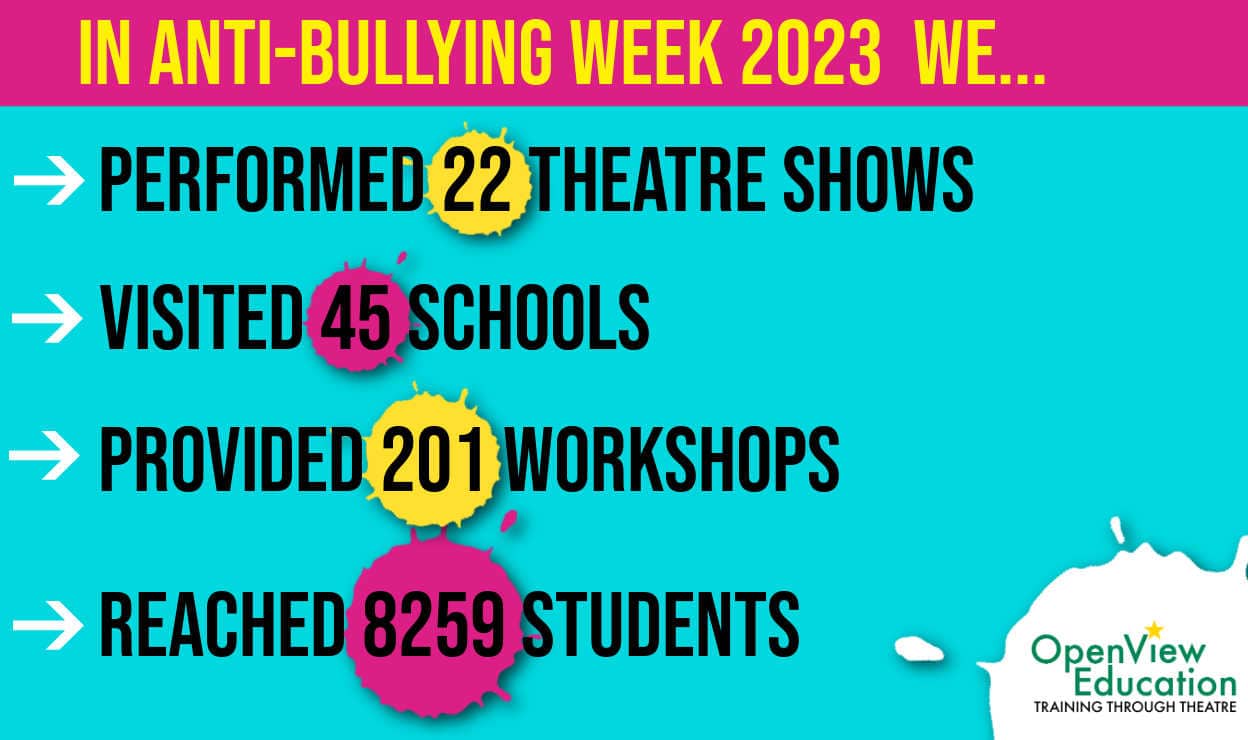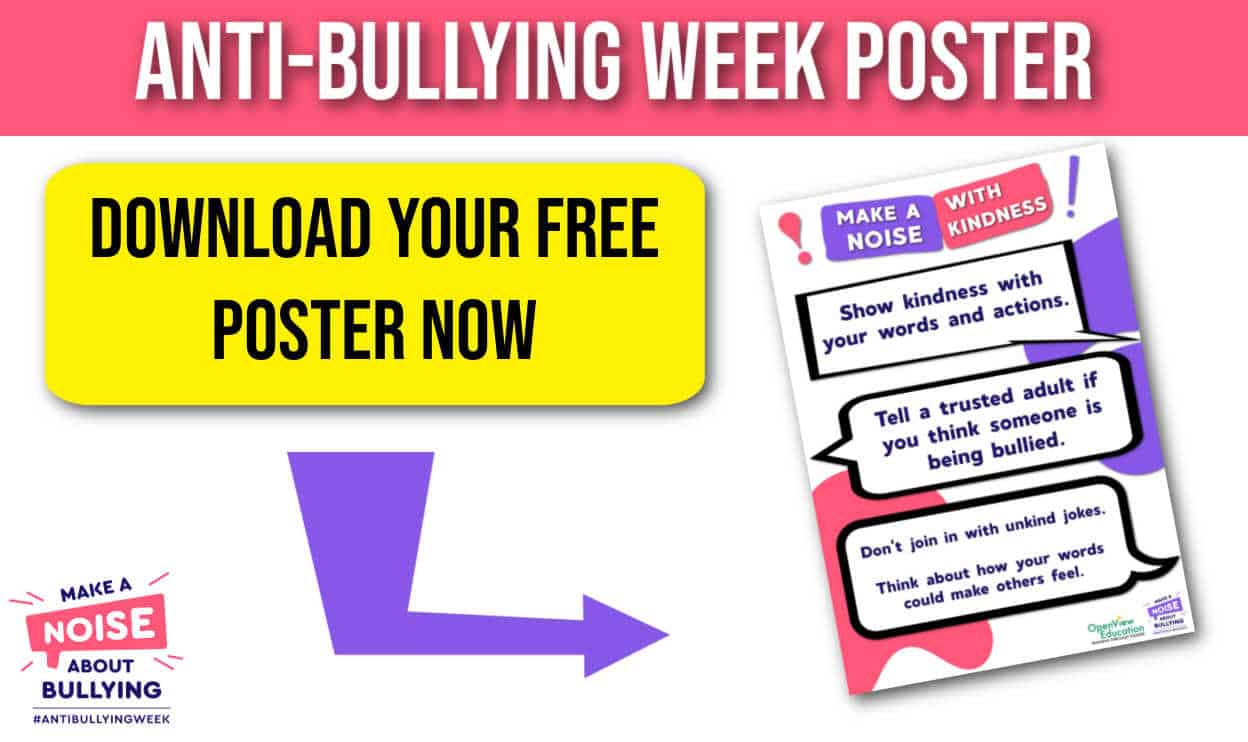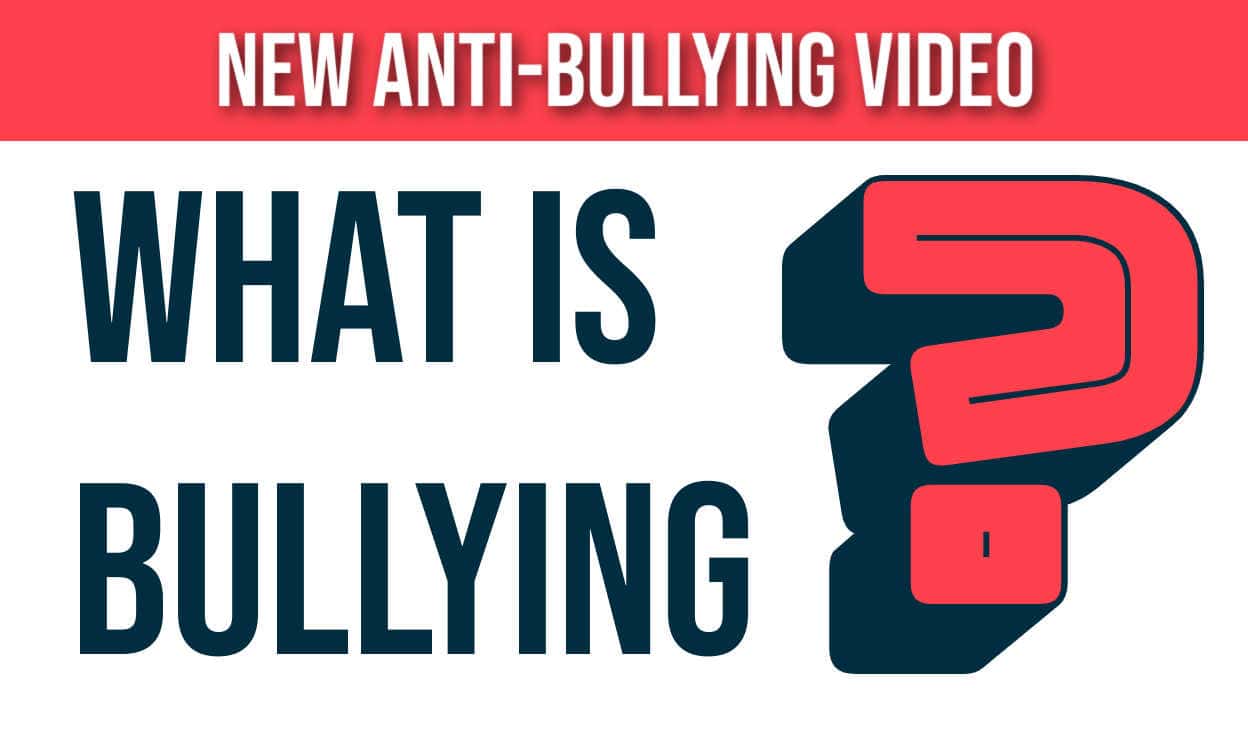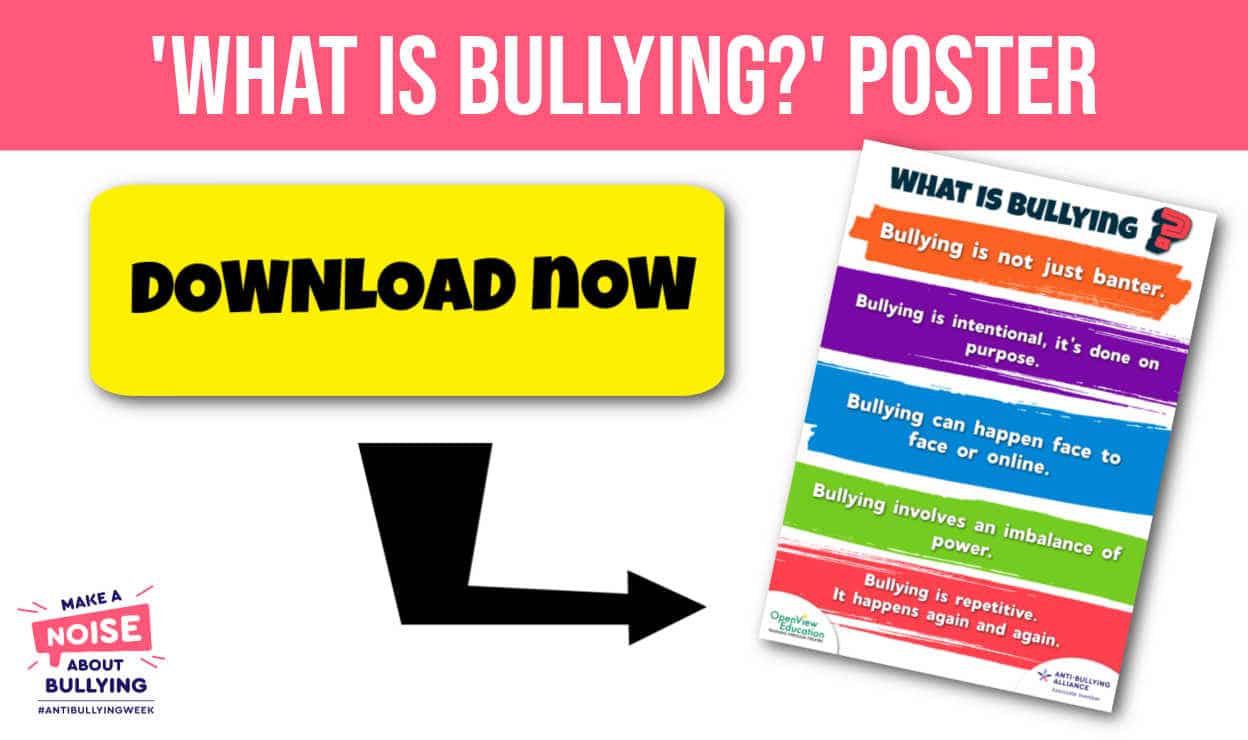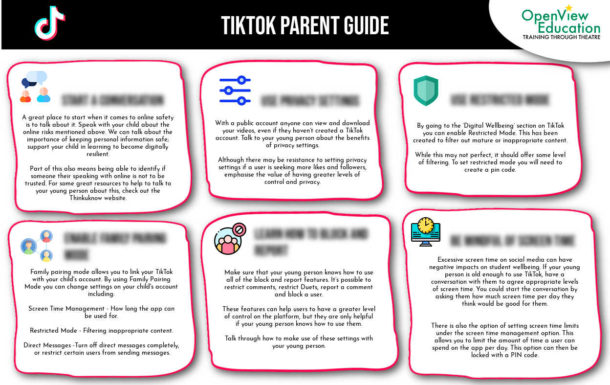Anti-Bullying Week Activities: How To Use Role-Play In The Classroom
The case for teaching anti-bullying in primary schools is pretty strong. Over half of all students in the UK will experience bullying at some stage. And the negative impacts of Bullying can be significant. Using theatre and drama techniques to teach students about how to deal with bullying can be a powerful approach to help students feel more confident and deal with bullying situations more confidently.
To better prepare our students to deal with bullying situations it can he useful to role-play situations they may face. So for Anti-Bullying Week 2018, try this approach that we use in our anti-bullying workshops for KS2: it’s a simple role-play activity.
Why Role-Play?
Because when we are faced with a challenging situation, it can be difficult to know what to do in the moment. By getting students up on their feet and physically rehearsing the right behaviours, not only will they feel more prepared, they will also remember what they learnt for longer.
We use role-play activities in all of our Anti-Bullying Workshops for Primary Schools for KS1 and KS2. We find it is a great way to make a session on anti-bullying more relevant to the students and more enjoyable.
We find this approach to role-play works well for KS2, Year 4 and upwards in Primary Schools.
Introduce the activity.
Tell the students they will be doing some acting to help them learn some new skills. Set clear expectations by giving the students some ground rules for the role play. For example, this could be three rules such as 1. Use appropriate language. 2. Keep your hands to yourself and 3. Always listen to instructions.
Set the scene.
Explain the situation in which bullying may have taken place, or for older groups you could get them to suggest a bullying situation. For example, a bully has taken another student’s bag and is refusing to give it back.
Outline the roles involved in the situation.
Explain there is a victim, a bully and a bystander. Explore the idea of who could do something to change this situation and what they could do.
Choose students to be in the role-play.
Allow students to volunteer and choose students who will set a good example of how the role-play should look. Explain that you will allow the students freedom to improvise their own lines, but you may ask them to deliver specific lines as the role-play moves on.
Stay in control.
While running the anti-bullying role-play it’s important to stay in control. If a student doesn’t know what to say or starts getting off track you can tell them what to say to steer the role-play in the right direction. As you are going through the Anti-Bullying role-play activity, you can freeze the action and then pose questions to the other students. Ask then ‘What’s happening here?’ or ‘What could happen next?’
Reflect
Review and reflect on the role-play and draw out specific behaviours that were effective. Draw out the lesson that it’s always the right thing to do to speak to someone about bullying we see or experience.
The purpose of this Anti-Bullying Week activity is to model appropriate behaviour to the students. Lead the role-play to the point where the students agree to go and speak to a teacher about what has taken place. This anti-bullying activity can be adapted to teach students about verbal bullying, physical bullying or cyberbullying.
So for Anti-Bullying Week 2018 get your class engaged by doing some interactive role-play.
We lead Cyber Bullying Workshops, Anti-Bullying Workshops for Primary Schools and Anti-Bullying Roadshows for KS1 & KS2 students all year round. We are currently taking bookings for Anti-Bullying Week 2018.
So if you would make Anti-Bullying Week 2018 an event to remember give us a call today on 0759 7984841 or drop us an email at openvieweducation@gmail.com

